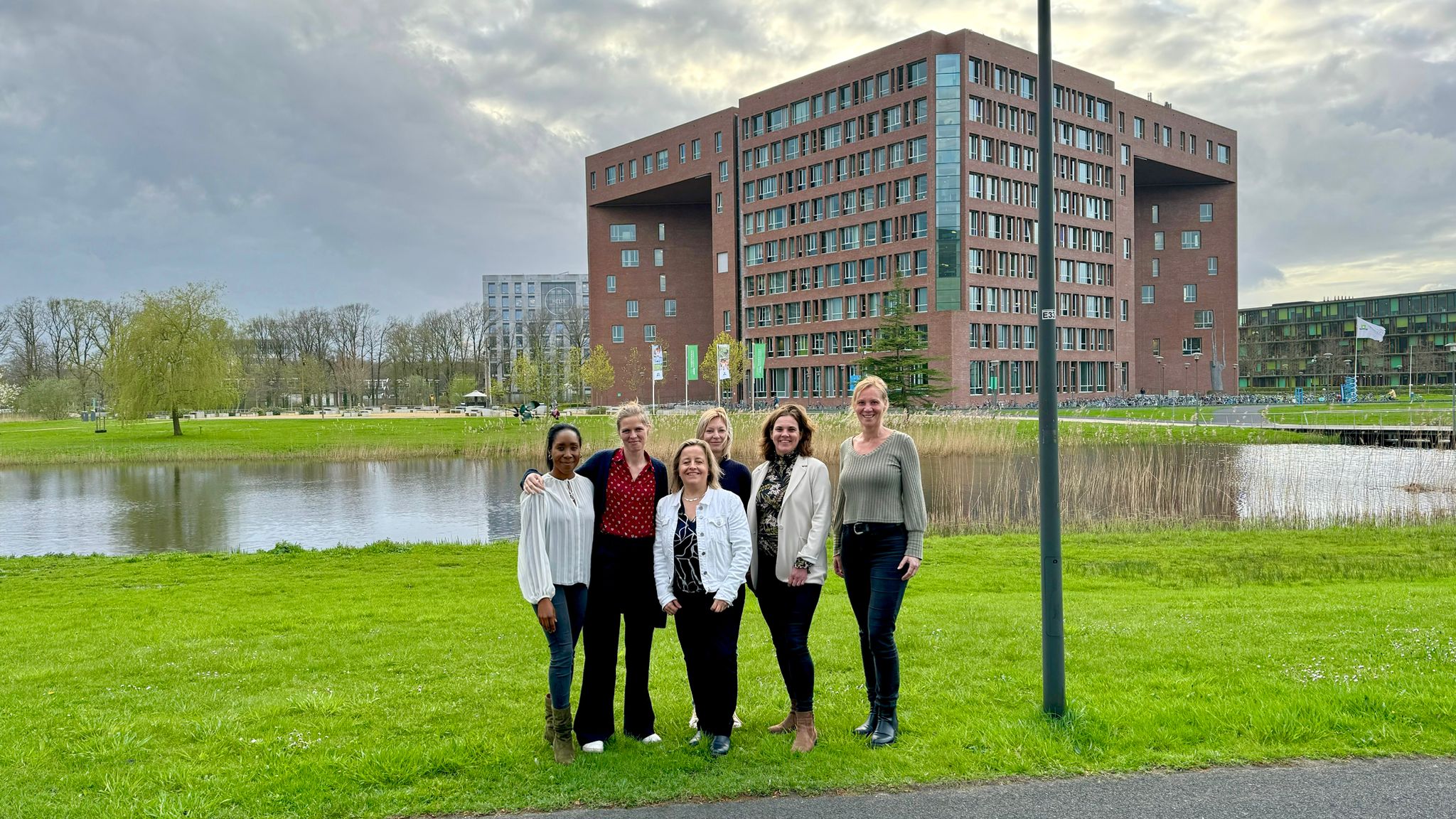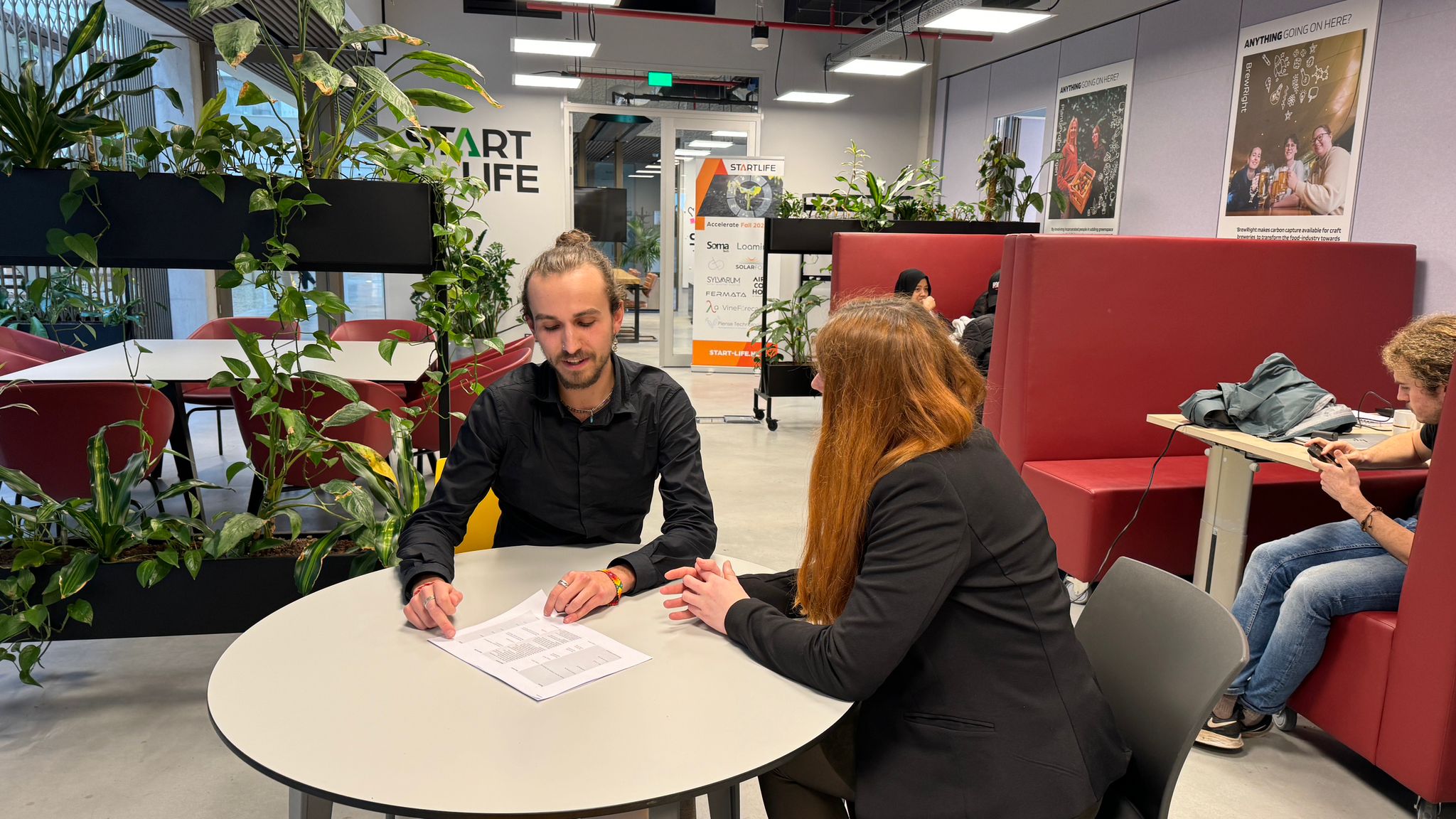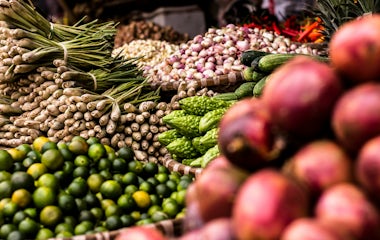Young Innovators to Transform Global Food Systems
It was around 4 o’clock in the afternoon on April 4th and the air was beginning to fill with anticipation in a small room at the Innovation Block at Wageningen University and Research (WUR). Inside an expert jury, including Carolijn Gommans from IDH Intelligence, Jacobine Mannak from dsm-firmenich, and Charlotte Verburg from the Ministry of Agriculture, Nature and Food Quality sat attentively, preparing to evaluate pitches for Wageningen’s 2024 Food Systems Innovation Challenge.
The Event Coordinator, Mirjam Troost, entered briskly and quickly briefed the panel on the pitch format before introducing the three competing teams. Each team comprised a mix of students from universities in the global North and South and was united by a common goal: to design a feasible, scalable, and impactful food systems project. The winners would receive EUR 2,500 along with professional mentorship to further develop their project and present it in a global challenge.

Student challenges like this have proven to be a vital platform for bridging knowledge gaps between industry, academia, and government, to effectively tackle complex societal issues. Beyond the campus, investors are increasingly ready to finance agrifood projects that demonstrate feasibility and scalability, as well as the potential for positive socioeconomic impact. Equipping young people with business and project development skills early on and providing real-world learning experiences not only expands their knowledge beyond the standard curriculum, but also helps ignite their creativity and problem-solving capabilities. Furthermore, such engagement and the exchange of skills between universities across regions enrich the educational experience, allowing students to gain broader, more diverse perspectives.
For Mirjam Troost, WUR’s Student Challenge Coordinator, and Bente Meindertsma, Coalition Builder at the Netherlands Food Partnership, it was crucial to include students from various global institutions in this year’s Innovation Challenge. They organized the event by grouping students from universities into interdisciplinary teams. The universities involved in this collaboration are Wollo University, Ethiopia; Lukenya University, Kenya; University of Abuja, Nigeria; Kathmandu University, Nepal; University of Ghana, Ghana; Makerere University, Uganda; Esalq-USP, Brazil and Anton de Kom University, Suriname.
Empowering smallholders in semi-arid Kenya
Among the standout project proposals submitted for the challenge at WUR was the “PermaVoltaics”, aiming to transform the agricultural practices of smallholder farmers in Kenya’s semi-arid regions. This innovative project combines permaculture with sustainable solar power, as a basis for improved food security.

PermaVoltaics integrates Agrivoltaic systems—semi-transparent photovoltaic panels placed over crops—with permaculture design principles. Permaculture mimics natural forest succession by first cultivating pioneer plants that improve soil conditions for perennial plants, followed by shrubs and trees, ultimately leading to a climax forest. The solar panels act similarly to trees, providing shade and protection, which allows farmers to cultivate a wider variety of crops sooner than if they had to wait for trees to mature. The pilot innovation will be hosted at Lukenya University in Kenya.
Mitigating Europe’s aging agricultural workforce
The second project “Agroboros” addresses the issues of Europe’s aging agricultural workforce, a concern underscored by numerous studies emphasizing the urgent need for proactive measures to mitigate its consequences. This project focuses on the significant impact of the aging crisis, especially in areas that rely heavily on small scale or family farming. The team’s project is dedicated to closing the gap between new generations and agriculture. They plan activities designed to enhance food and agricultural literacy in both urban and rural areas, as well as in educational settings. The project targets children and their caretakers, offering immersive educational experiences to cultivate an early interest in agriculture. The pilot innovation will be implemented in Nantes, France.

It was inspiring to witness the innovative ideas, hard work, and ambitious goals of the students in tackling global food systems challenges. For us at IDH Intelligence, it was particularly energising to coach these students to identify and consider data and insights that are needed to design sustainable smallholder-focused business models. This is in line with our mission to drive more and better investments into smallholder-inclusive business models demonstrating through evidence what works and what does not.

In addition to the above projects selected as part of the first round of the food systems innovation challenge, each participating university will select two teams. These teams will compete in a global challenge which is scheduled for end of September. Out of the 18 teams in total, the winners will be announced on September 30th at the Grand Finale on Wageningen Campus. We wish all teams the best of luck as they use data and insights to innovate for fairer and more sustainable food systems!
Related Resources



Your Insights Hub journey has just started
Sign up here for access to updates - and industry insights and innovation - from the Smallholder Inclusive Business Newsletter.